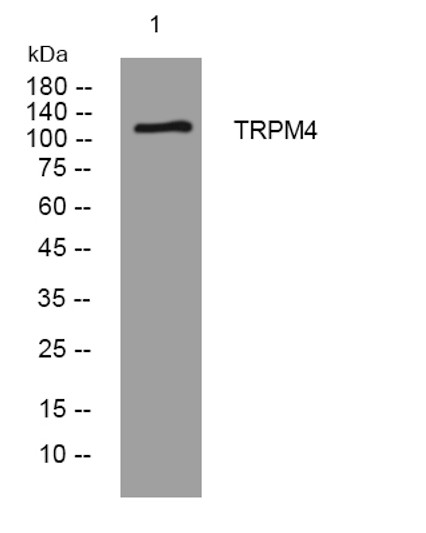| Post Translational Modifications | Phosphorylation by PKC leads to increase the sensitivity to Ca(2+). Sumoylated. Desumoylated by SENP1. |
| Function | Calcium-activated selective cation channel that mediates membrane depolarization. While it is activated by increase in intracellular Ca(2+), it is impermeable to it. Mediates transport of monovalent cations (Na(+) > K(+) > Cs(+) > Li(+)), leading to depolarize the membrane. It thereby plays a central role in cadiomyocytes, neurons from entorhinal cortex, dorsal root and vomeronasal neurons, endocrine pancreas cells, kidney epithelial cells, cochlea hair cells etc. Participates in T-cell activation by modulating Ca(2+) oscillations after T lymphocyte activation, which is required for NFAT-dependent IL2 production. Involved in myogenic constriction of cerebral arteries. Controls insulin secretion in pancreatic beta-cells. May also be involved in pacemaking or could cause irregular electrical activity under conditions of Ca(2+) overload. Affects T-helper 1 (Th1) and T-helper 2 (Th2) cell motility and cytokine production through differential regulation of calcium signaling and NFATC1 localization. Enhances cell proliferation through up-regulation of the beta-catenin signaling pathway. Plays a role in keratinocyte differentiation. Isoform 2: Lacks channel activity. |
| Protein Name | Transient Receptor Potential Cation Channel Subfamily M Member 4Htrpm4Calcium-Activated Non-Selective Cation Channel 1Long Transient Receptor Potential Channel 4Ltrpc-4Ltrpc4Melastatin-4 |
| Database Links | Reactome: R-HSA-3295583Reactome: R-HSA-9717207 |
| Cellular Localisation | Isoform 1: Cell MembraneMulti-Pass Membrane ProteinEndoplasmic ReticulumGolgi ApparatusIsoform 2: Cell Membrane |
| Alternative Antibody Names | Anti-Transient Receptor Potential Cation Channel Subfamily M Member 4 antibodyAnti-Htrpm4 antibodyAnti-Calcium-Activated Non-Selective Cation Channel 1 antibodyAnti-Long Transient Receptor Potential Channel 4 antibodyAnti-Ltrpc-4 antibodyAnti-Ltrpc4 antibodyAnti-Melastatin-4 antibodyAnti-TRPM4 antibodyAnti-LTRPC4 antibody |
Information sourced from Uniprot.org






